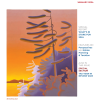WASHINGTON, January 22nd - The Bankers' Association for Finance and Trade is endorsing a new industry standard document today that will be used by European banks to facilitate the buying and selling of country and bank trade-related risk. The new Industry Master Participation Agreement endorsed by BAFT is designed to simplify the exchange of documentation between banks and reduce legal costs by minimizing redundancies and excessive bi-lateral discussions.
"The Industry Master Participation Agreement will increase efficiency, promote trade, and enhance the bottom line for the banking industry," said Rebecca Morter executive director of BAFT. "This is an essential document that simplifies the process of risk participation in a way that will increase opportunities and invite further trade among banks."
The development of the Industry Master Participation Agreement was initiated by BAFT's European Advisory Council (EAC) and spearheaded by Jochen Cerny, co-chairman of the EAC and senior vice president of Commerzbank AG, Germany.
"This internationally supported document was developed through the efforts and input of banking industry leaders across Europe looking to enhance the vitality of the industry," said Jochen Cerny. "I have every confidence to believe that the IMPA will become the generally accepted global standard."
The Industry Master Participation Agreement is governed by English law and was drafted by a working group made up of certain members of the EAC. The international law firm Denton Wilde Sapte LLP was engaged to assist with the final form of the IMPA template. It is anticipated to become the standard framework agreement for member banks of the EAC.
The European Advisory Council (EAC) serves as the European bank membership's senior committee responsible for advising BAFT's executive committee and board of directors on issues affecting European members. The member banks of the EAC are ABN AMRO Bank, Allied Irish Banks PLC, BBVA, Banco Popular Español, Barclays Bank PLC, Citi, Commerzbank AG, Credit Suisse, Danske Bank, Deutsche Bank AG, HSBC Bank PLC, ING Bank N.V., Intesa SanPaolo S.P.A., JPMorgan Chase & Co., Landesbank Baden-Württemberg, Nordea, Royal Bank of Canada, The Royal Bank of Scotland plc, SEB Merchant Banking, Societe Generale, UBS AG, and Wells Fargo Bank N.A.
The Bankers' Association for Finance and Trade is a financial trade association whose membership represents a broad range of internationally active financial institutions and companies that provide important services to the global financial community. BAFT serves as a forum for analysis, discussion and action among international financial professionals on a wide range of topics affecting international trade and finance, including legislative/regulatory issues. Because of its global focus and broad membership, BAFT plays a unique role in expanding markets worldwide, shaping public policy, and promoting practices that preserve the safety and soundness of the international financial system. BAFT was founded in 1921 and became an affiliate of the American Bankers Association in July of 2002. The association's website is www.baft.org.
Legal Note:
Neither BAFT, the EAC, Denton Wilde Sapte LLP nor any member of BAFT or the EAC makes any warranty or assurance as to the legality, validity, enforceability, fitness or suitability of the IMPA or any of its terms. It is the responsibility of each potential user of the document to seek appropriate advice so as to satisfy itself as to those points and the legal, commercial or regulatory implications of using such document. In using the MPA each party is deemed to confirm that it has not relied on any statement made by BAFT, the EAC, Denton Wilde Sapte LLP or any member of BAFT or the EAC.





